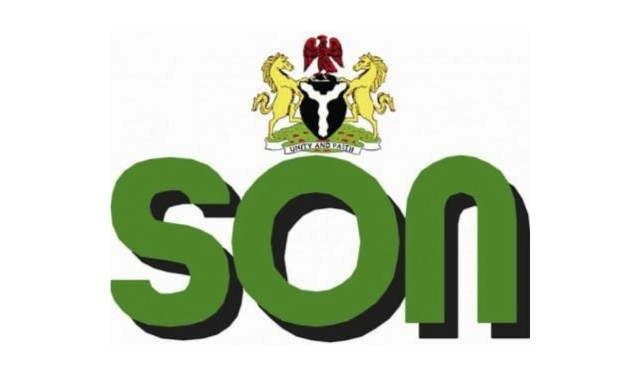Business
SON To Establish Laboratories In Six Geo-Political Zones

The Standards Organisation of Nigeria (SON) says it has concluded plans to establish laboratories in the six geo-opolitical zones for testing products and ensuring standardisation in the country.
The Special Assistant to the Director-General of SON, Mr Bola Fashina, disclosed this in an interview with newsmen, yesterday in Abuja.
According to Fashina, the organisation already has in its 2020 budget, plans to establish laboratories in the six zones to ensure that products met required standards for certification.
He said SON would ensure that products within each region could easily be tested at the regionally laboratories, instead of sending them to its laboratories in Lagos, Kaduna or Enugu.
“In the last four to five years, we have had a new laboratory complex consisting of about 36 laboratories in Ogba Industrial Estate in Lagos.
“A lot of laboratories there have already attained international accreditation.
“This is to ensure that the result of whatever test that is carried out there is acceptable globally,’’ he said.
Fashina noted that the establishment of the laboratories was aimed at supporting government’s Economic Recovery and Growth Plan (ERGP) to ensure that Nigerian products and produce were easily exported without rejection.
“Apart from these ones, we have other laboratories, namely textile and leather laboratory located in Kaduna, engineering laboratory in Enugu, and another laboratory in our operational headquarters in Lekki, Lagos.
The Head, Public Relations, SON, further said that a national centre was being constructed to take care of Nigeria and West African Metrology Institute to support industrialisation.
He explained that the centre would ensure accuracy of measurement in length, volume or mass, among others to ensure that manufacturing and trading were done with accuracy.
Fashina said that the centre would also ensure that machines used in manufacturing in the country were calibrated from time to time to ensure accuracy.
“It is an ongoing thing because laboratories evolve with technology as taste of people change all over the world and in view of the fact that standards now are not static.
“Standards all over the world are being harmonised at regional, international and continental levels, often times standards in food are usually coded standards.
“It is only in cases where such standards do not exist that you find new standards being developed for products that are just emerging.
“Once they are developed, it makes trading across borders very easy,’’ he said.
Fashina expressed SON’s commitment to continue to invest in developing laboratories in view of the implementation of African Continental Free Trade Area (AfCFTA) agreement.
Business
Nigeria’s ETF correction deepens as STANBICETF30, VETGRIF30 see 50% decline in a week

Business
BOI Introduces Business Clinic

Business
Dangote signs $400 mln equipment deal with China’s XCMG to speed up refinery expansion

-
Maritime3 days ago
Nigeria To Pilot Regional Fishing Vessels Register In Gulf Of Guinea —Oyetola
-

 Sports3 days ago
Sports3 days agoGombe-Gara Rejects Chelle $130,000 monthly salary
-
Maritime3 days ago
Customs Declares War Against Narcotics Baron At Idiroko Border
-
Maritime3 days ago
NIMASA,NAF Boost Unmanned Aerial Surveillance For Maritime Security
-

 Sports3 days ago
Sports3 days agoTEAM RIVERS SET TO WIN 4×400 ” MORROW” …Wins Triple jump Silver
-

 Sports3 days ago
Sports3 days agoNPFL Drops To 91st In Global League Rankings
-

 Sports3 days ago
Sports3 days agoNPFL Impose Fines On Kwara United Over Fans Misconduct
-
Maritime3 days ago
NIWA Collaborates ICPC TO Strengthen Integrity, Revenue

